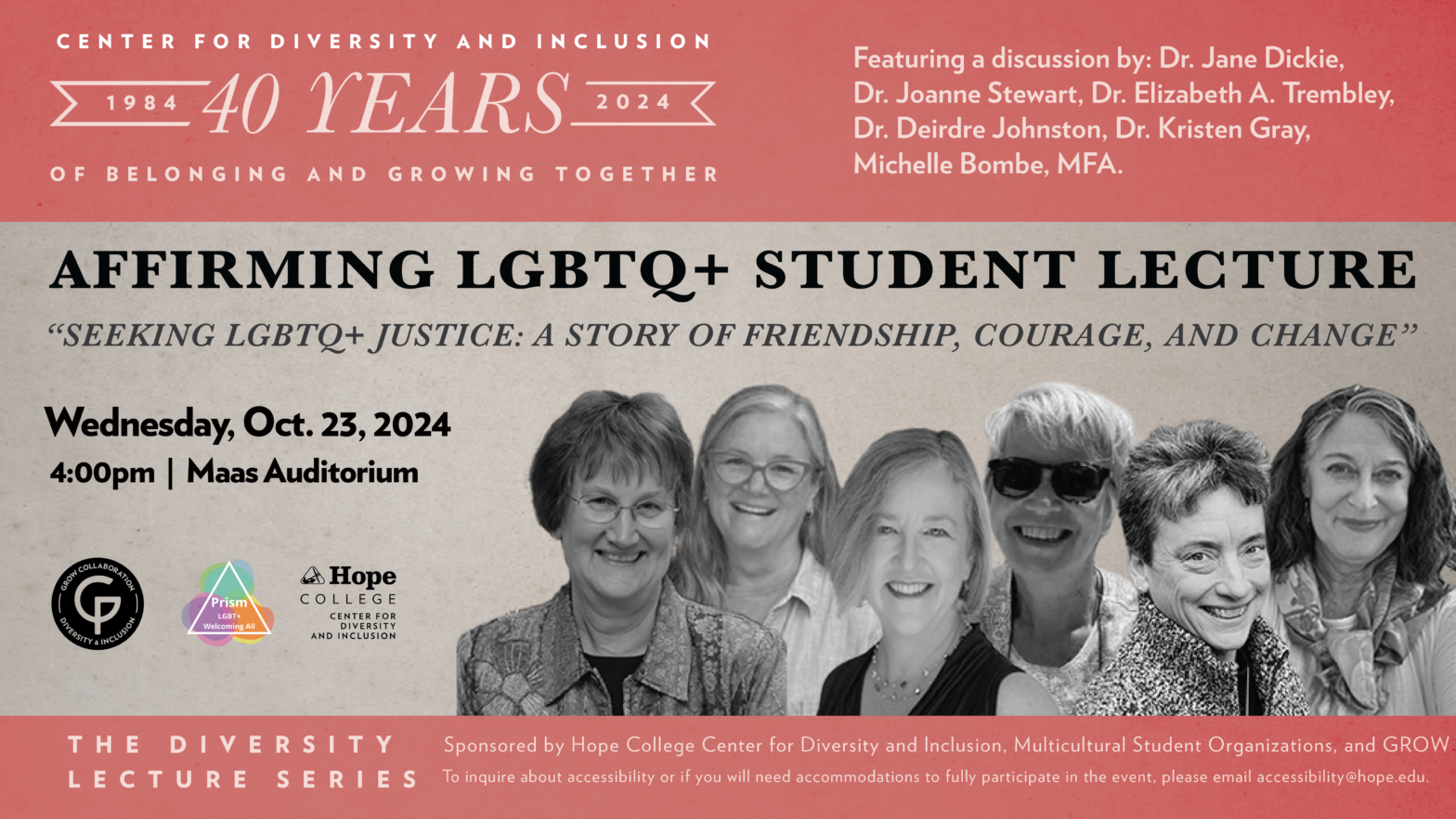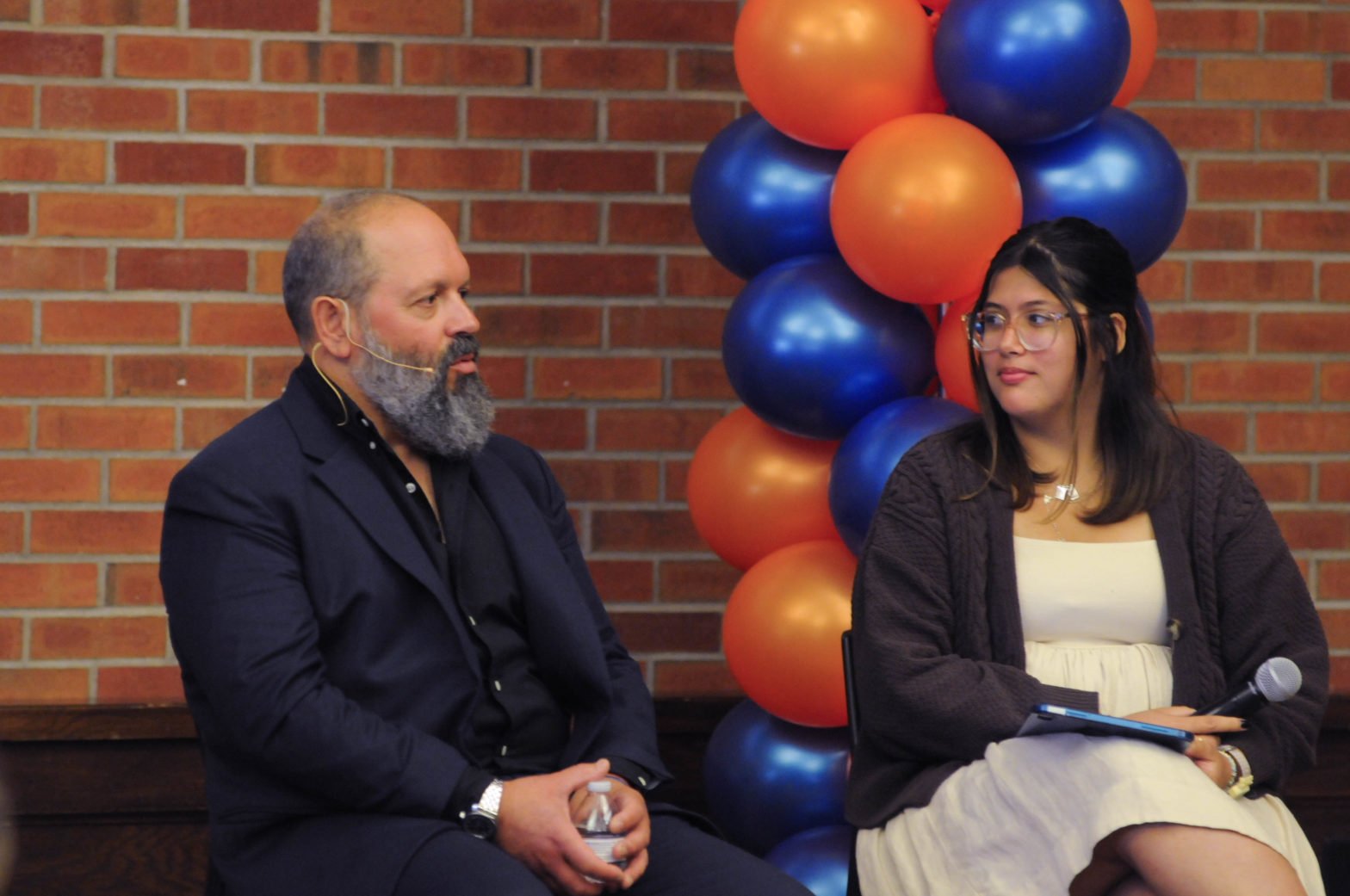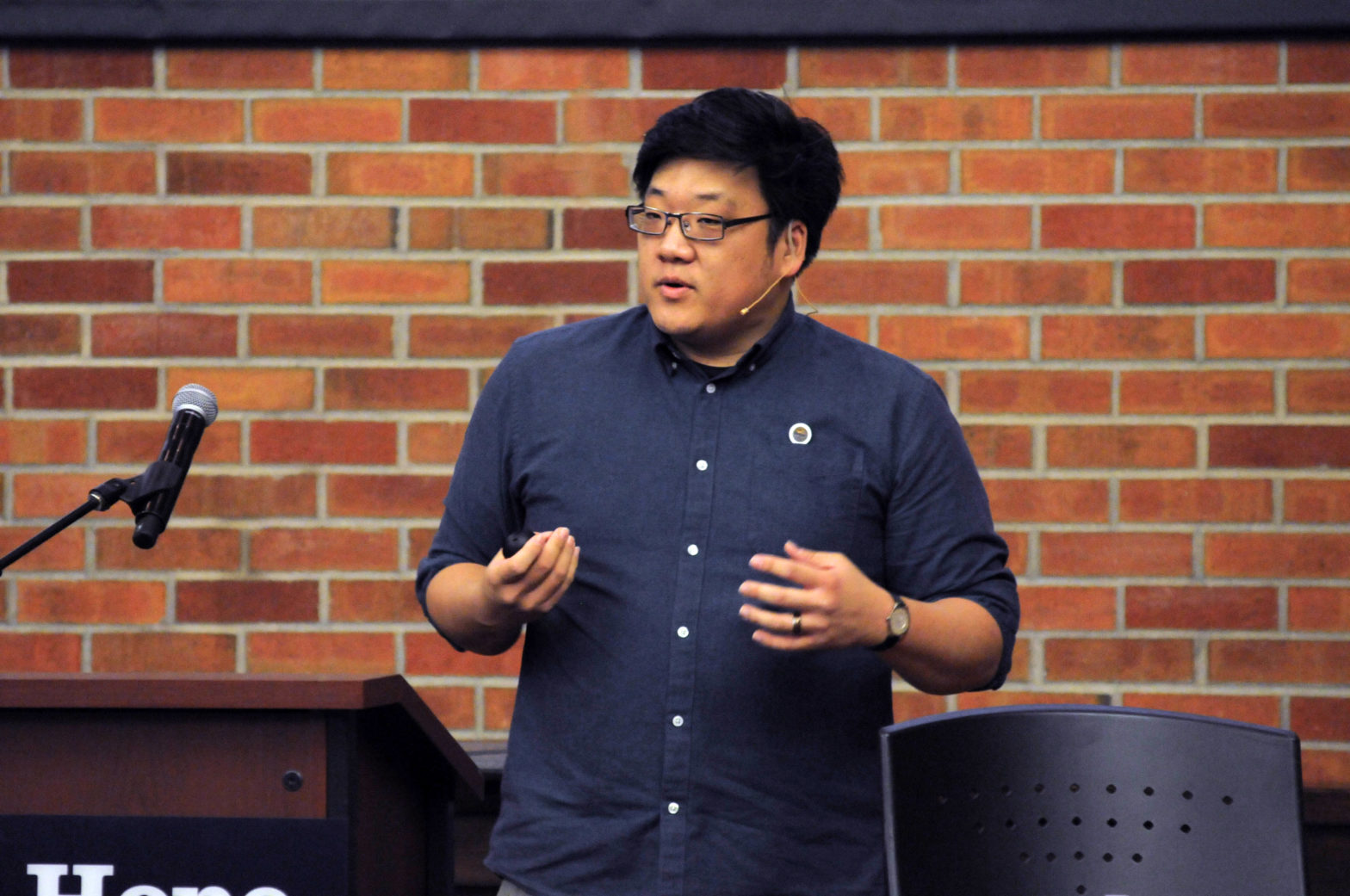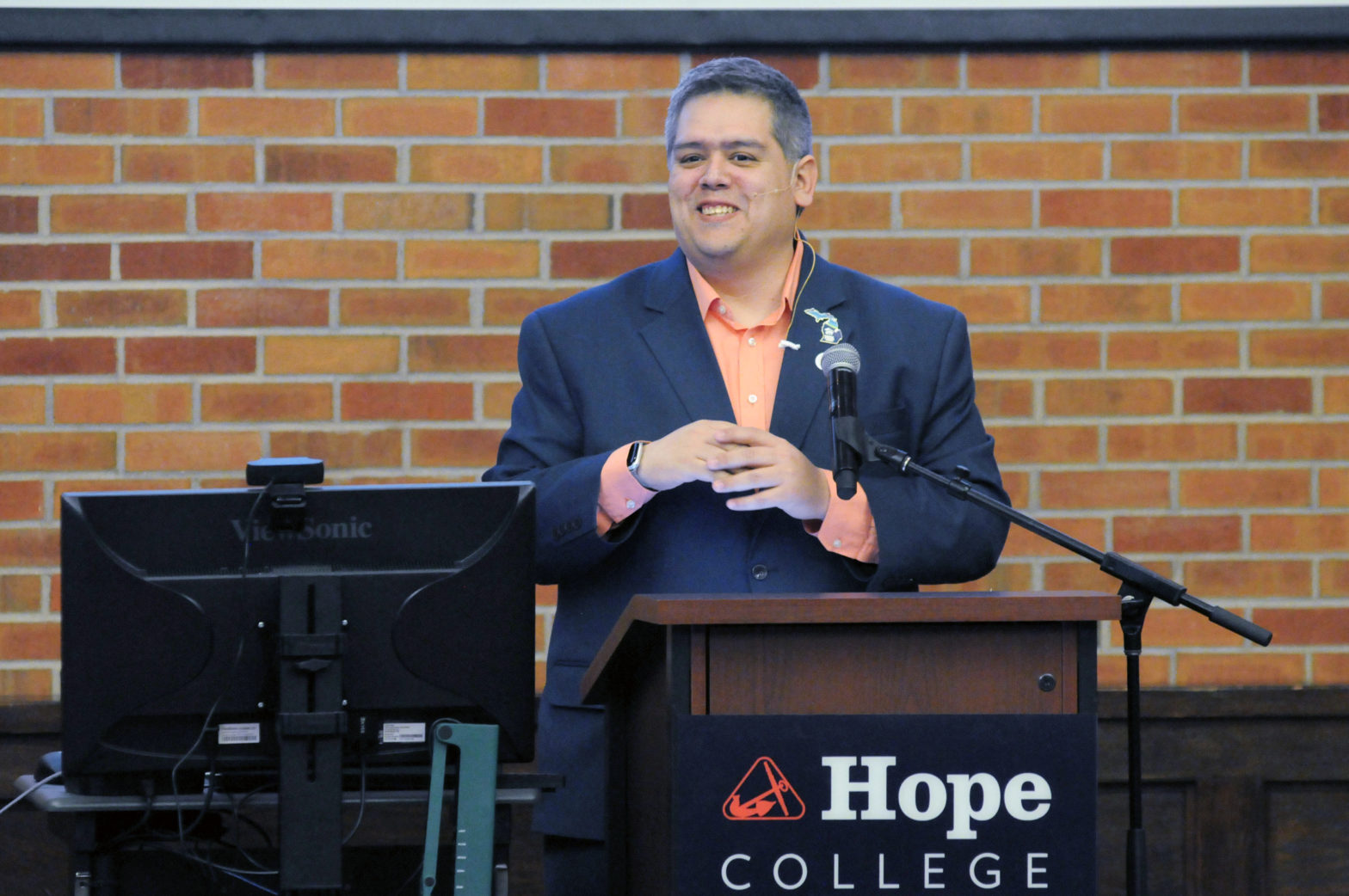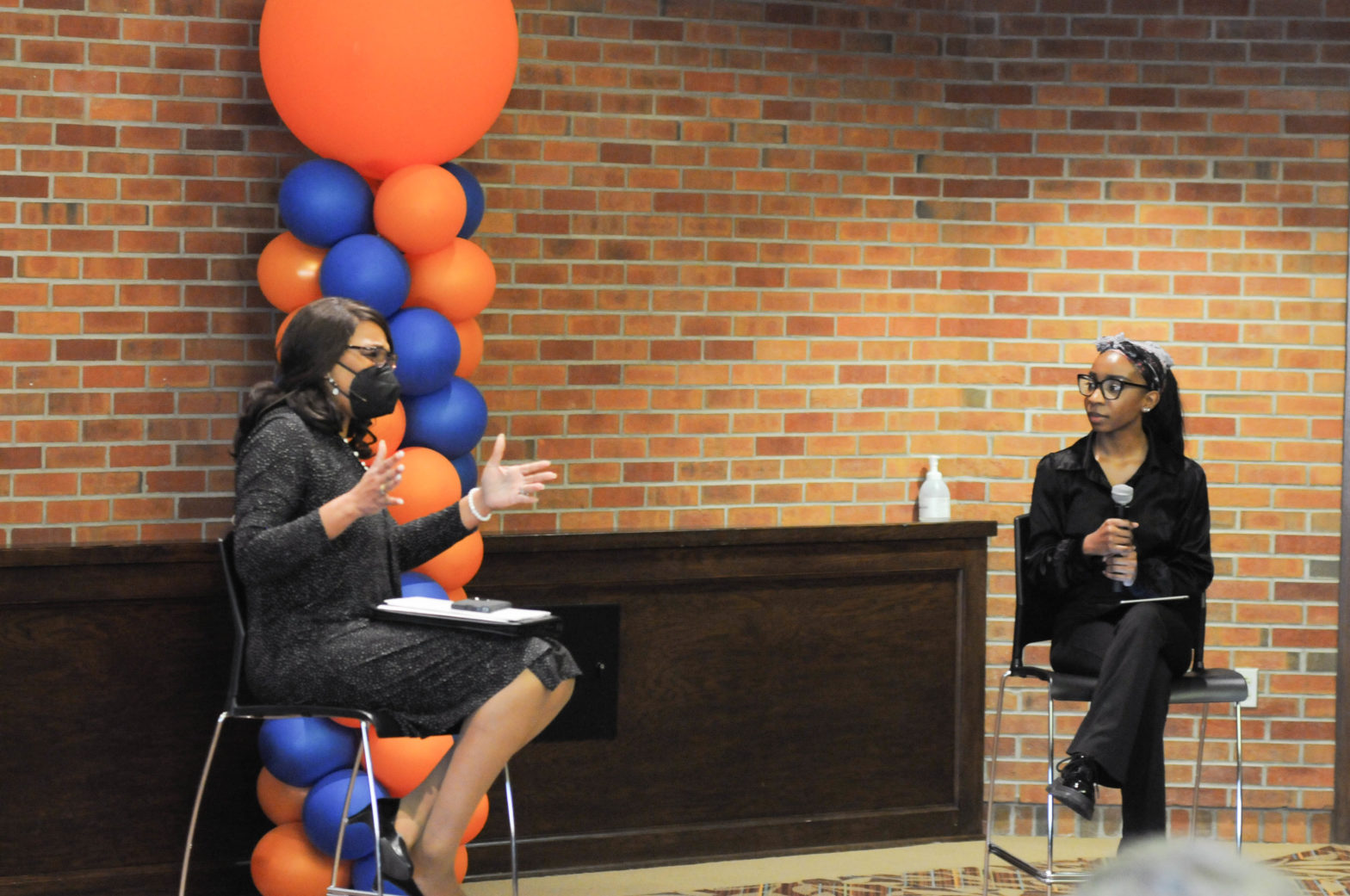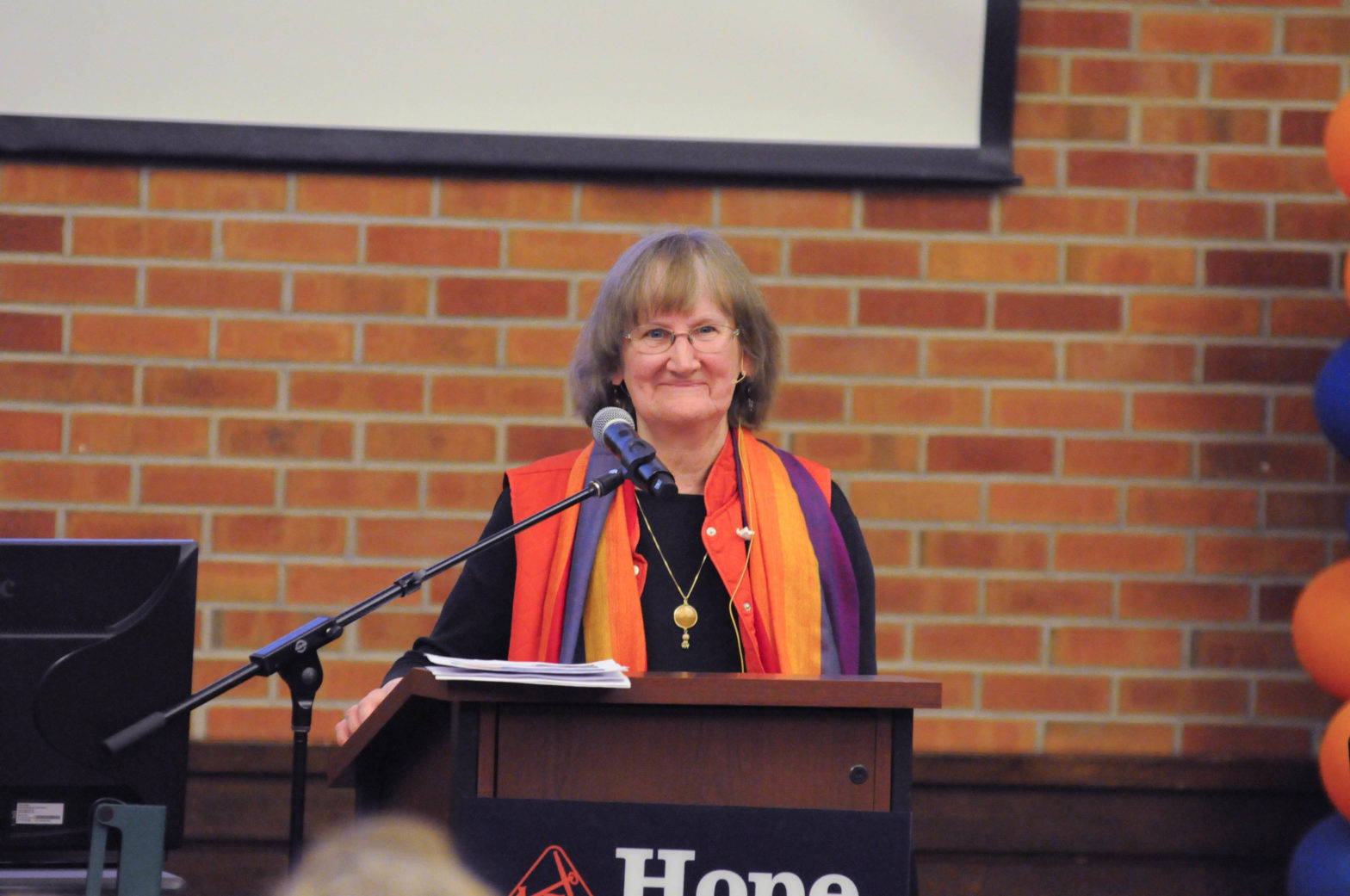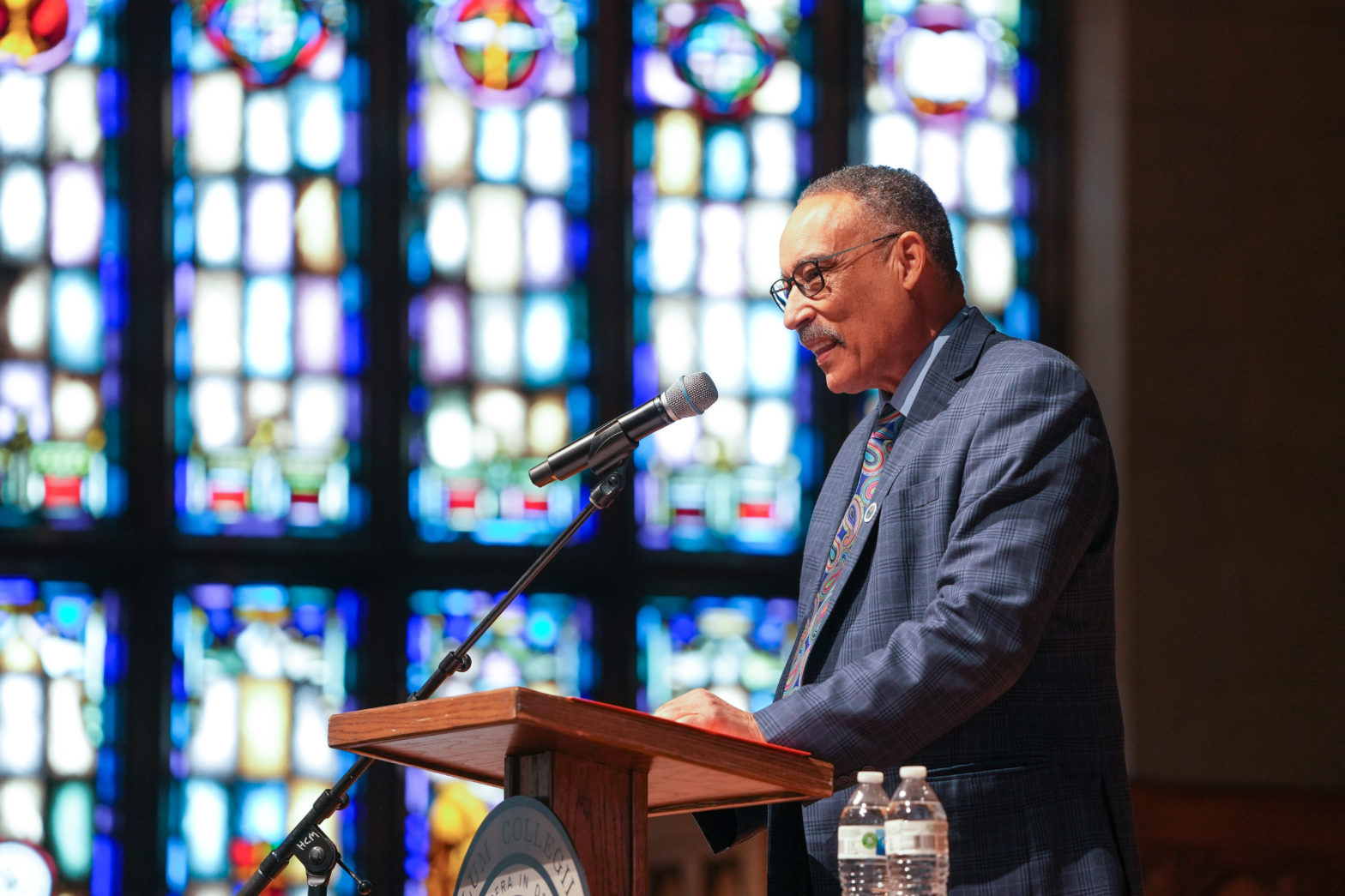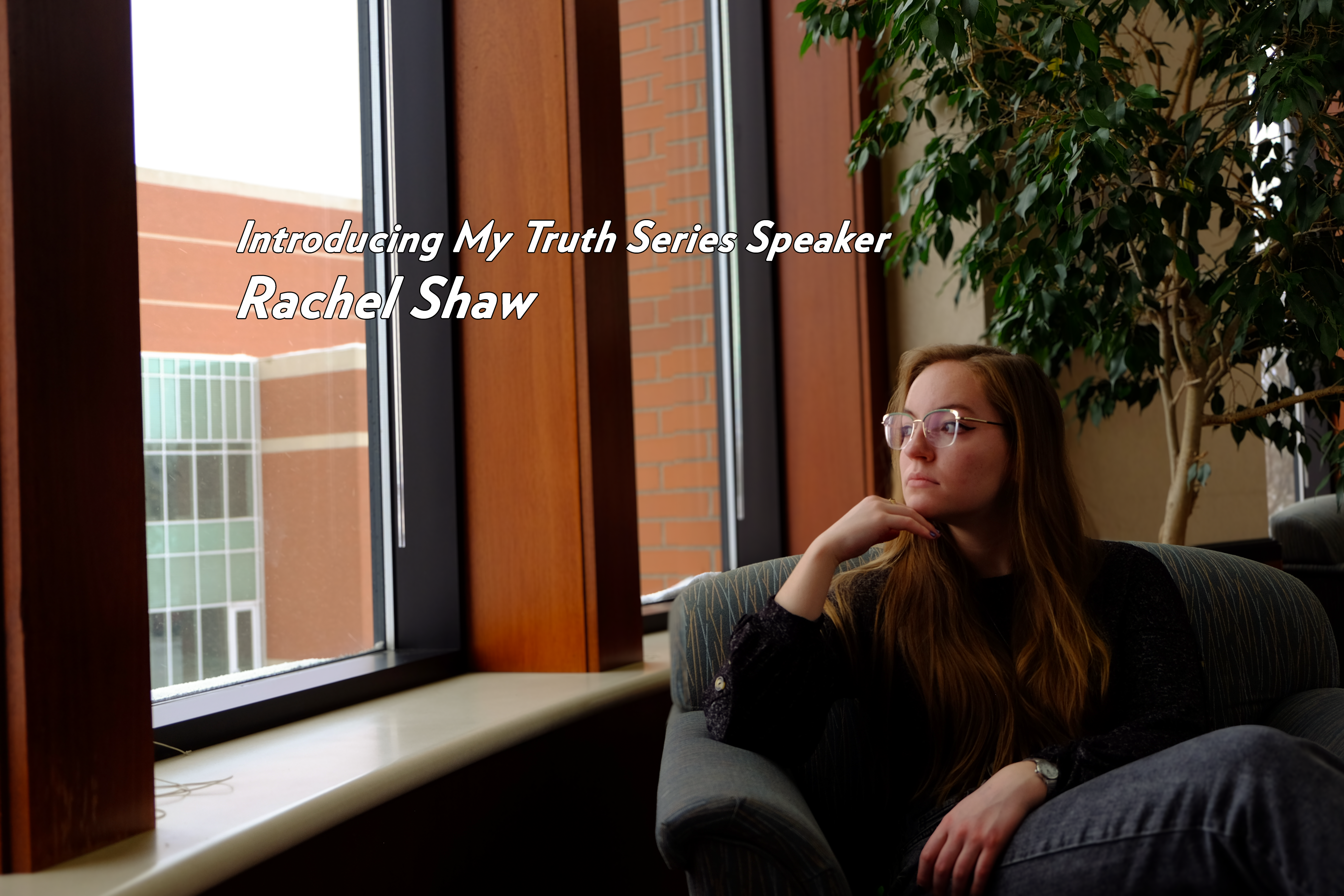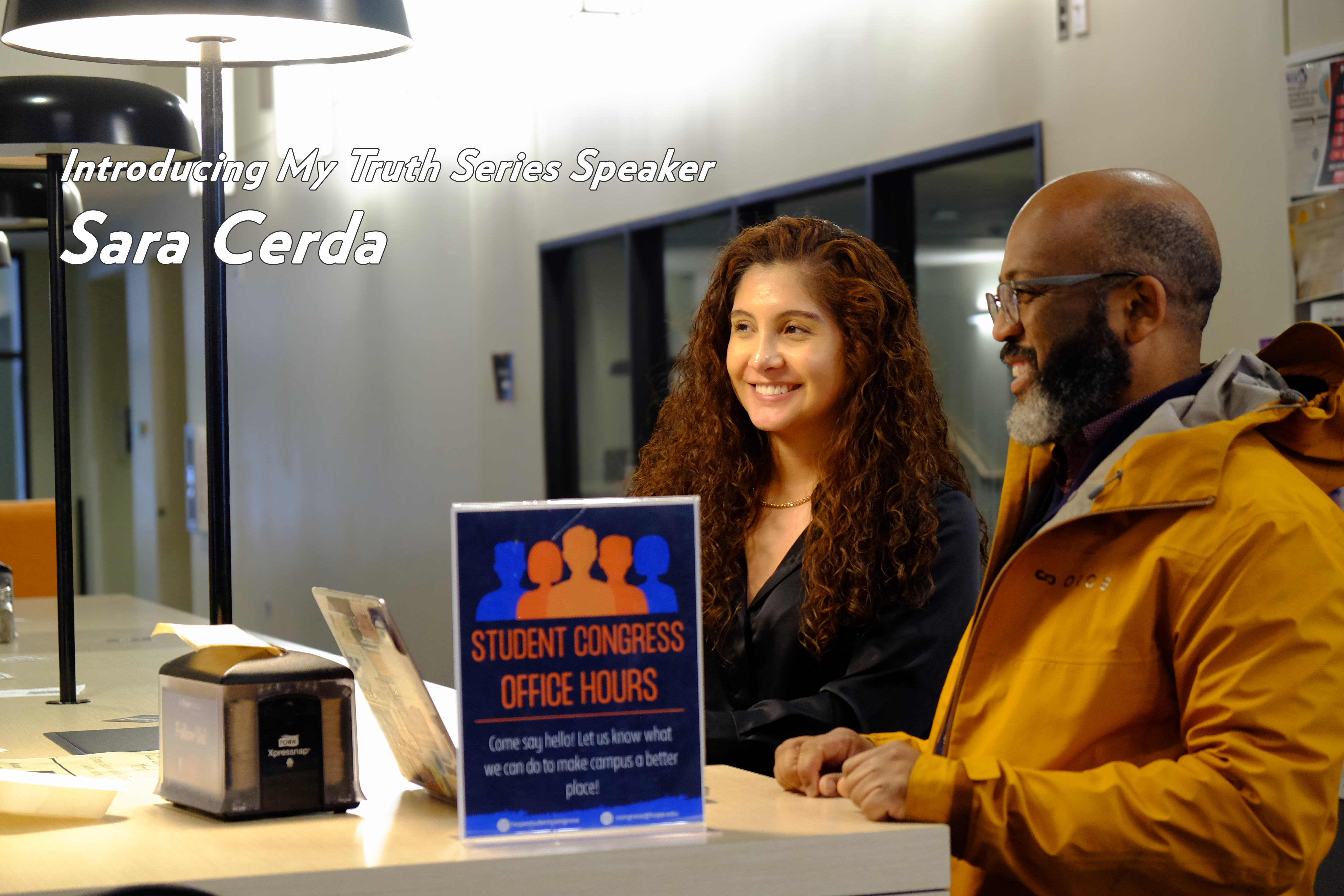This year’s Affirming LGBTQ+ Students Lecture at Hope College presented a panel discussion on “Seeking LGBTQ Justice: A Story of Friendship, Courage, and Change” with current and retired Hope faculty and staff members on Wednesday, Oct. 23, at 4 p.m. in the Maas Center Auditorium.
The panelists included multiple current and retired members of the college’s faculty: Michelle Bombe, who is a professor of theatre, chair of the department and executive artistic director of Hope Repertory Theatre; Dr. Kristen Gray, who is retired after serving in roles including associate dean for health and counseling, director of the Counseling and Psychological Services office and off-campus study advisor; Dr. Deirdre Johnston, who is retired from the communication faculty and was associate dean of global education; Dr. Joanne Stewart, who is the Elmer E. Hartgerink Professor of Chemistry and directs the college’s Center for Teaching and Learning Initiative; and Dr. Elizabeth Trembley, who is retired from the English faculty and had also directed the college’s FOCUS and SOAR programs. The panel will be moderated by Dr. Jane Dickie, who is retired from the Hope psychology faculty and was founding director of the college’s women’s and gender studies program.


